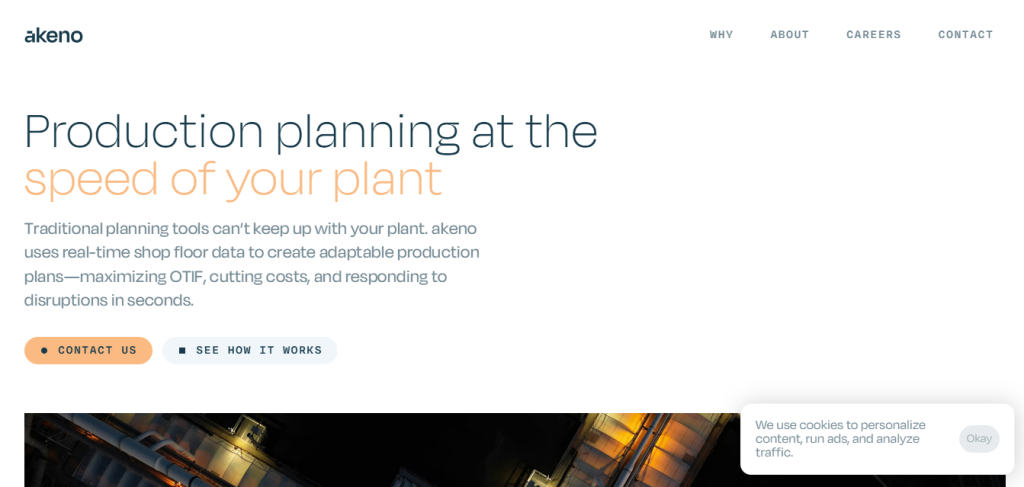Akeno Raises $5M in Seed Round to Reshape Enterprise Efficiency with AI-Driven Assistants
July 14, 2025
byFenoms Startup Research

Akeno has secured $5,043,937 in Seed funding to advance its mission of transforming how businesses operate through intelligent software agents. The round was led by Cusp Capital, with participation from TS Ventures and another.vc, underscoring investor confidence in Akeno’s potential to redefine enterprise workflows with automation at the core.
Founded by Alexander Ebbrecht and his team, Akeno is entering the competitive AI space with a bold proposition - designing autonomous agents that handle complex business tasks with little to no human input. This fresh capital will help scale their team, expand platform capabilities, and position themselves at the forefront of the AI productivity movement.
What Akeno Does
At its core, Akeno builds AI-powered agents designed to execute repetitive and resource-heavy processes across enterprise environments. Whether it’s managing data entry, coordinating between departments, or optimizing supply chain flows, Akeno’s system is built to reduce manual load and boost team efficiency without requiring major infrastructure overhauls.
Unlike traditional automation platforms that rely heavily on user-defined workflows, Akeno leverages machine learning to adapt dynamically, learning from data, feedback loops, and usage patterns to improve continuously.
“We don’t just create tools - we build agents that think and act,” says co-founder Alexander Ebbrecht. “The goal is to empower businesses to scale operational excellence without scaling costs.” And it’s not just about saving time - it’s about shifting how work is fundamentally structured. When these agents are embedded into the backbone of a company’s operations, they don’t simply support employees; they become the operational layer itself. This shift - from software as a tool to software as a doer - has massive implications.
For founders building in enterprise SaaS, the takeaway is critical: the future isn’t about giving users more dashboards to manage their work - it’s about building systems that do the work for them. That means tighter integration with real business logic, agents that can adapt to uncertainty, and a UX that looks more like results than buttons. The teams that master this shift early will find themselves not just replacing human effort - but redefining what effort looks like in the first place.
Why It Matters Now
The rise of intelligent automation has rapidly shifted from a futuristic concept to a modern necessity. As companies struggle with labor shortages, rising operational complexity, and high expectations for agility, the demand for scalable, intelligent systems is intensifying.
And this is where Akeno is hitting a nerve with investors and users alike. According to Gartner, 70% of organizations will implement structured automation by 2025, and the market for AI-enabled automation software is expected to surpass $25 billion globally by 2027. Enterprise leaders are no longer just looking for software - they’re demanding solutions that drive autonomous execution.
The true strategic value Akeno offers lies not just in automating what already exists - but in discovering operational blind spots that humans overlook. By embedding AI agents deep within core business systems, Akeno uncovers inefficiencies that were previously invisible and provides actionable optimizations that free up human capital for more strategic work.
Akeno fits squarely into this next-generation need, offering not just task automation, but continuous, learning-based optimization that adapts to the real-world complexity of modern businesses.
Founders take note: The next frontier of competitive advantage isn't just speed or cost - it's adaptive intelligence baked into your operational DNA. Akeno is showing how to build that future today.
The Market Opportunity
The market for intelligent process automation is booming. According to McKinsey, up to 50% of work activities across industries could be automated using current technologies, with the global market for business process automation projected to reach $19.6 billion by 2026.
Yet, only a fraction of businesses are tapping into the true potential of AI-driven agents.
Akeno’s platform stands out because it doesn't require companies to have AI expertise or overhaul their current tech stack. Its plug-and-play modularity and enterprise integration tools allow for fast deployment, giving mid-sized and large enterprises a frictionless path to digital transformation. What sets Akeno apart is its focus on enterprise-ready deployment without complexity. Many automation platforms demand custom integrations or developer-heavy setup. Akeno’s low-code, modular architecture allows enterprise teams to roll out agents in weeks, not months, cutting down on time-to-value and lowering barriers to experimentation.
As industries like logistics, healthcare, and financial services increasingly turn to AI to improve efficiency and accuracy, platforms like Akeno are positioned to lead.
Who’s Backing Them
The participation of Cusp Capital, TS Ventures, and another.vc signals strong market validation. These investors are known for backing early-stage startups with disruptive potential, and their support positions Akeno for rapid expansion across Europe and beyond.
- Cusp Capital has a track record of identifying high-growth SaaS and platform startups in their formative stages.
- TS Ventures, co-founded by serial entrepreneur Tim Schumacher, focuses on sustainable digital business models.
- another.vc brings technical depth and early operational support to AI-first startups.
What’s Next for Akeno
With funding secured, Akeno plans to expand its engineering and product teams, accelerate deployment with early enterprise partners, and double down on agent intelligence training and safety protocols. The team is also exploring vertical-specific use cases in logistics, finance, and manufacturing - sectors where human error and data bottlenecks cost billions annually.
Additionally, Akeno aims to launch a self-serve platform for mid-sized businesses by early 2026, opening access to a broader customer base and enabling flexible, low-code integration with existing tools like ERP systems, CRMs, and cloud data warehouses.The long game? To become the go-to intelligent operating layer for enterprise environments - an invisible workforce of AI agents working 24/7 in the background to keep operations lean, adaptive, and scalable.









